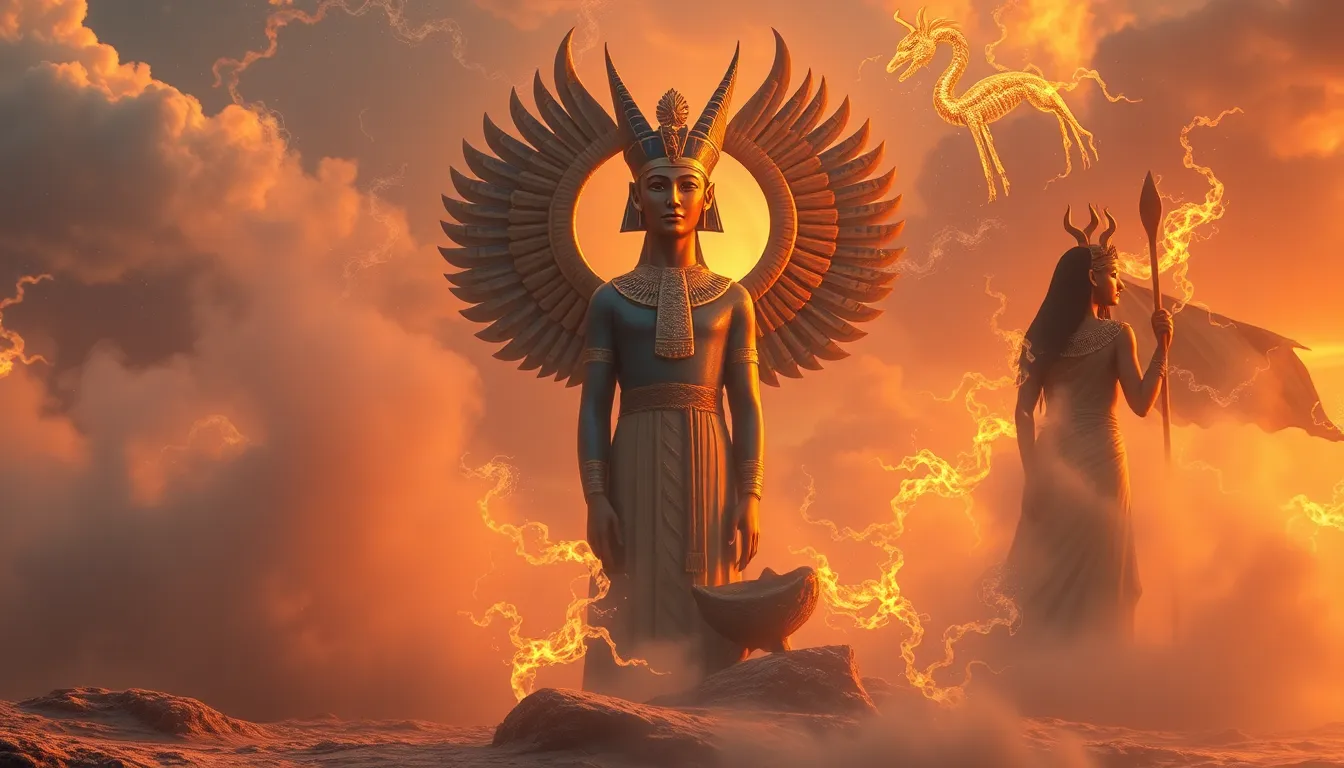The Role of Dreams in Egyptian Religious Beliefs
I. Introduction
Ancient Egyptian civilization was rich in religious beliefs and practices that shaped their understanding of the world. Central to these beliefs was the notion that dreams held significant meaning, serving as a bridge between the divine and the mortal realms. This article explores the vital role dreams played in ancient Egyptian culture, examining their symbolism, interpretation practices, and the influence they had on daily life.
II. Historical Context of Dreams in Ancient Egypt
In ancient societies, dreams were often viewed as messages from the gods or reflections of one’s inner thoughts and feelings. The Egyptians were no exception, placing great importance on dreams as a means of divine communication.
A. The significance of dreams in ancient societies
Dreams were seen as a source of guidance and prophecy, often influencing important decisions and societal norms. The Egyptians believed that dreams could reveal truths about the future or provide insights into the past.
B. Key historical texts and artifacts related to dreams
Several ancient texts, such as the “Dream Book” and various papyri, detail dream interpretation and highlight the significance of dreams in Egyptian culture. Artifacts depicting dream interpretations provide further evidence of their importance.
C. Evolution of dream interpretation in Egypt
Over time, the methods of interpreting dreams evolved, influenced by changes in religion and society. The early interpretations often focused on omens, while later practices integrated symbolic meanings and personal reflections.
III. The Symbolism of Dreams in Egyptian Religion
Dreams in ancient Egypt were rich with symbolism, often reflecting the cultural and religious beliefs of the time.
A. Common themes and symbols found in dreams
- Animals: Frequently represented gods or spiritual messages.
- Water: Symbolized the afterlife and rebirth.
- Buildings: Often indicated stability or changes in life circumstances.
B. The connection between dreams and the afterlife
Many Egyptians believed that dreams could provide glimpses into the afterlife, offering assurance or warnings about one’s spiritual journey.
C. Interpretation of specific dream symbols
Specific symbols in dreams were interpreted according to established meanings, such as:
- A serpent: A warning of danger or betrayal.
- A deceased relative: A sign of unresolved issues or guidance from the spirit world.
- Flying: Represented freedom or a desire to escape from earthly troubles.
IV. Dream Interpretation Practices
The interpretation of dreams was a specialized practice in ancient Egypt, often overseen by priests and skilled interpreters.
A. Roles of priests and dream interpreters
Priests and interpreters were crucial figures in the community, responsible for deciphering dreams and providing guidance based on their insights.
B. Methods used for interpreting dreams
Methods of interpretation varied but often included:
- Analyzing the emotional impact of the dream.
- Contextualizing the dream within the dreamer’s waking life.
- Consulting established texts and traditions for symbolic meanings.
C. Differences between personal and collective dream interpretations
While personal dreams were often interpreted based on individual circumstances, collective dreams could be seen as omens for the community or society at large.
V. Dreams as Divine Communication
In ancient Egypt, dreams were frequently regarded as messages from the gods, conveying important information or warnings.
A. Dreams as messages from the gods
Many Egyptians believed that their dreams were direct communications from deities, offering insights into their lives and destinies.
B. Notable examples of prophetic dreams in Egyptian mythology
Mythological stories often feature dreams that lead to significant events, such as:
- The dreams of Pharaohs, which foretold their fates.
- Joseph’s interpretation of dreams, which saved Egypt from famine.
C. Case studies from historical figures
Historical records document instances where prominent figures, including Pharaohs, acted upon dreams that significantly impacted their reigns and the course of Egyptian history.
VI. The Relationship Between Dreams and Daily Life
Dreams were not only spiritual phenomena but also played a crucial role in the everyday lives of ancient Egyptians.
A. How dreams influenced decision-making and daily activities
Many Egyptians consulted their dreams when making important life decisions, such as marriage or business ventures, believing that dreams could provide crucial guidance.
B. Rituals and practices surrounding dreams
Various rituals were performed to invoke favorable dreams, including:
- Prayers to specific deities for clarity in dreams.
- Creating dream journals to record and analyze dreams.
C. Personal accounts of dream experiences among Egyptians
Surviving records include personal accounts of dream experiences that illustrate how deeply intertwined dreams were with the Egyptian way of life.
VII. The Legacy of Egyptian Dream Beliefs
The beliefs surrounding dreams in ancient Egypt have influenced various cultures and continue to resonate today.
A. Influence on later cultures and religions
Many dream interpretation practices in subsequent cultures can be traced back to ancient Egyptian beliefs, demonstrating the lasting impact of their understanding of dreams.
B. Continued interest in dreams in modern Egypt
In contemporary Egypt, dreams remain a topic of intrigue, with many still believing in their significance and consulting dream interpreters.
C. The impact of dream research on understanding ancient beliefs
Modern research into dreams has provided insights into the psychological and cultural significance of dreams, enhancing our understanding of ancient Egyptian beliefs.
VIII. Conclusion
In summary, dreams played a crucial role in ancient Egyptian religious beliefs, serving as a medium for divine communication and personal reflection. The enduring significance of dreams in spirituality is evident in their continued exploration and interpretation.
For those interested in further research, exploring the intersection of dreams, psychology, and spirituality could provide deeper insights into the beliefs of ancient cultures and their legacies.




